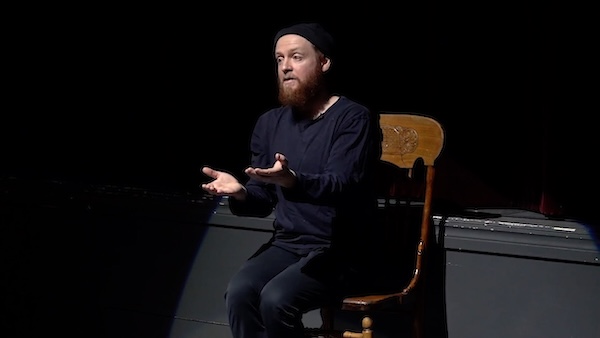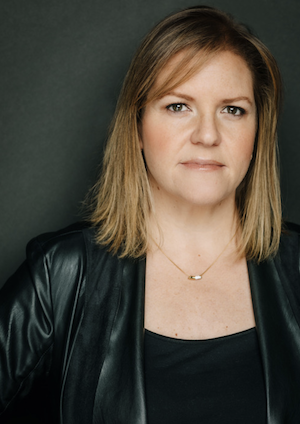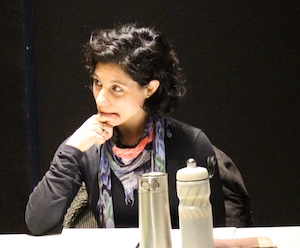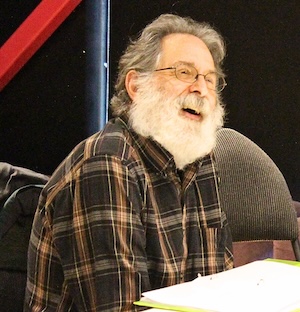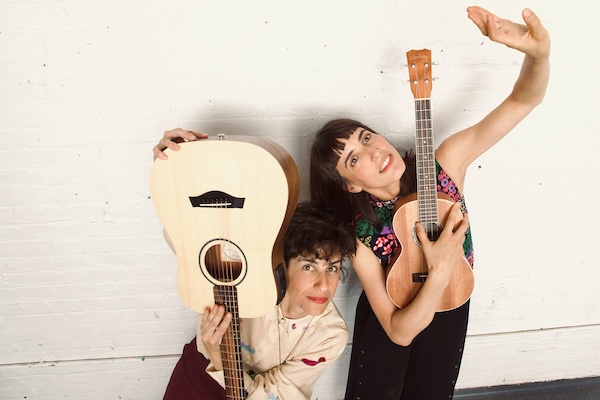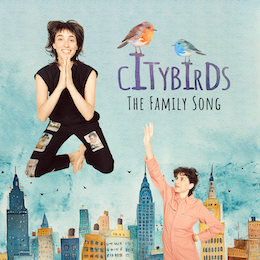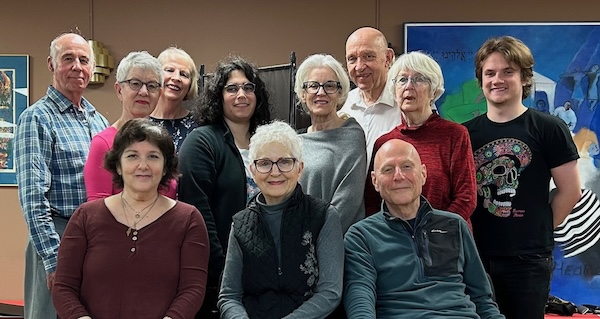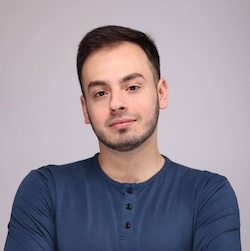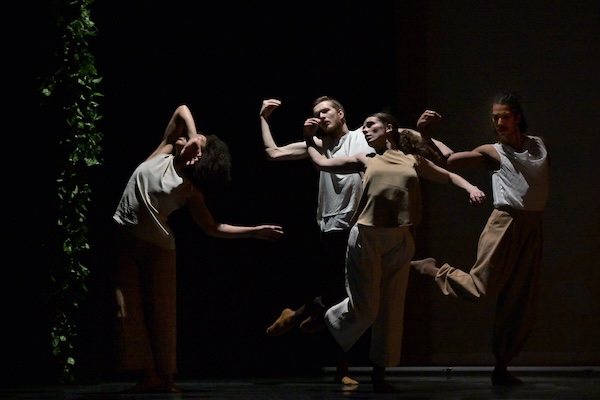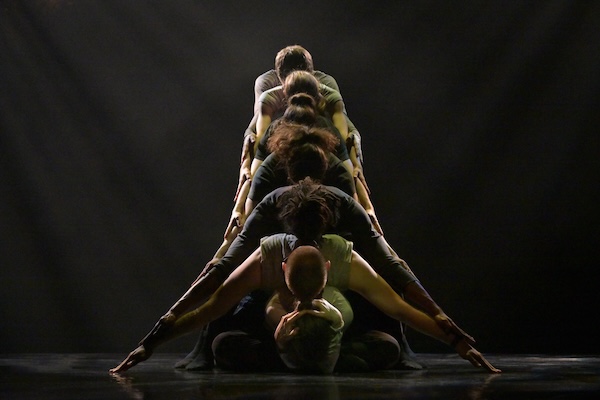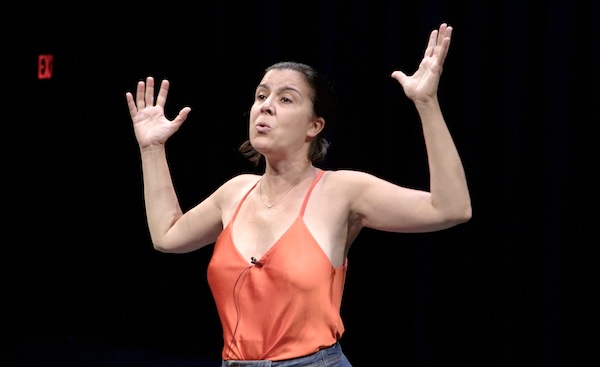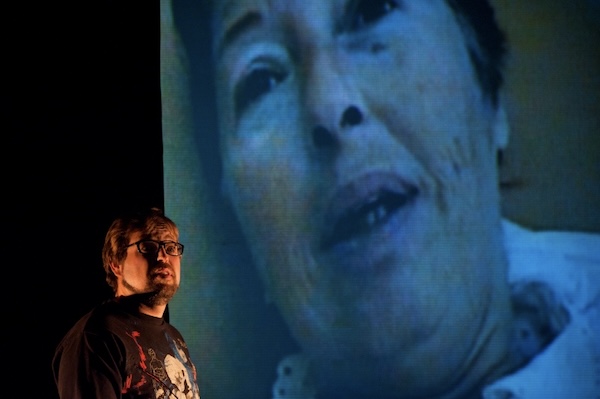David Bloom, left, and Richard Newman share two different roles in Western Gold Theatre’s production of Caryl Churchill’s Here We Go, which is at PAL Studio Theatre until May 25. (photo by Colleen Bayati)
“I love Caryl Churchill – she is quirky,” actor Rosy Frier-Dryden told the Independent. “She makes you think, makes you work. You can’t just rely on lines! You have to bring her lines to life.”
Frier-Dryden co-stars in Western Gold Theatre’s production of Churchill’s Here We Go, which centres around a funeral. Director Kathryn Bracht describes the work as “a deceptively simple, 45-minute exploration on death and dying that is a surrealist meditation wrapped up in her crafty, clever dialogue.”
For the run at PAL Studio Theatre, which goes to May 25, Frier-Dryden is joined by fellow Jewish community members David Bloom and Richard Newman in the cast, which is rounded out by Bernard Cuffling, Kate Robbins and Peihwen J. Tai.
“Without giving all of the storyline away, the general structure of the play is that it’s in three parts: a funeral scene; a monologue scene, where the deceased speaks; and a final scene without words,” explained Newman.
“We did our first runs today, and it’s quite remarkable how the three scenes build on each other to explore relationships with aging and death,” added Bloom. “It’s startlingly funny and weirdly moving.”
Bloom and Newman share roles, as do the other actors: Frier-Dryden with Robbins, and Cuffling with Tai.
“In half of the shows, I am on stage in the first third playing one of five people attending a funeral,” said Newman. “In the other half of the shows, I play the subject of the funeral, the guy who died, who has a lengthy monologue – six pages of script, to be precise. This monologue is brilliantly written – emotional, scary and, always, funny. Quite a challenge, but such a great scene to play.
“Because of Churchill’s writing and Kathryn Bracht’s direction, each actor has a lot of leeway to interpret their lines and define their characters. Like me, David will have his own interpretation of both roles, and we’ve agreed not to watch each other, so we’ll not be influenced by the other – we’re developing our characters independently. Each of us rehearses alone in the room with the director.”
Frier-Dryden also spoke enthusiastically about the latitude the actors have in this play.
“The most marvellous thing is, you are allowed to create your own character, based on what Caryl Churchill writes and the freedom she gives you,” said Frier-Dryden. “In the first scene, I am playing a character that is older and a big personality. She is a Londoner, upper class, and lives in Eaton Square with a vast array of friends. She had an affair with the guy whose funeral we are attending. In the final scene, she is ill, has dementia and she is slipping away. She and her husband have come to terms.”
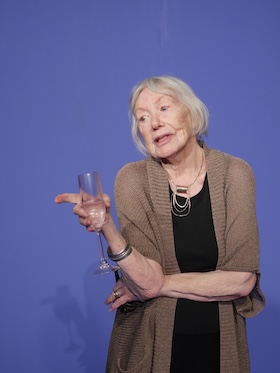
“Caryl Churchill is quite simply a remarkable playwright,” said Western Gold Theatre artistic director Tanja Dixon-Warren. “She has an extraordinary command of language and deep understanding of human nature. Her work is very reminiscent of Pinter and Beckett, in that the text is pared down to its absolute essentials. There is nothing extraneous or gratuitous.
“She has a distinctive, truly singular approach to writing,” Dixon-Warren continued. “Very often there is no punctuation, and lines are not assigned to specific characters, thus allowing the director and actors to find multiple stories and characters within the piece – knowing that they will bring their life experience to the work. This requires that the director, actors, designers really dig into the play, to find all the nuances and be very, very specific about what they are saying. Her material is, essentially, just the beginning of the conversation.”
It certainly has the actors thinking beyond the play and about their own lives: Bloom is 65, Newman is 78 and Frier-Dryden is 90.
“I find myself being grateful for being alive and still being able to move around under my own power,” said Bloom, who commented that the monologue “is both a marathon and a sprint” in which he immerses himself every bus journey, so he’s physically and emotionally exhausted at the end of each day.
“I think about my parents a lot,” he added, “because the play reminds me of their last years and the different ways they faced bodily decline and death. There’s a scene I’m not in that brings up heartbreaking memories of my father’s last years. But, mostly, I’m so delighted to be working on such a beautiful piece of writing with a group of wonderful people, many of whom are even older than I am.”
“You start to think about what’s really important, what I want to do with whatever is left of my life,” said Newman, who has lost many friends in the last year-and-a-half or so.
“What strikes me most strongly is that I am enjoying being here and am looking forward to sticking around to enjoy life as best as I can, as long as I can,” he said. “I consider myself fortunate – I run, work at keeping my body as healthy as I can – and believe my mind will follow…. This play kind of dovetails with my life and the issues and experiences that arise, the things I’m doing and how I’m dealing with life at this age. It’s a kind of serendipity to be in this play.
“At the end of the day,” said Newman, “I’m reminded that life is a gift, a miracle. I have my work, friends both young and old, family. I’m blessed.”
Here We Go also resonates with Frier-Dryden, who recently lost a family member.
“I have lived through the deaths of many, especially recently, and I think of this play and its themes … all the time,” she said. “I am not just going to rehearse – I am going with the knowledge that someone dear has died, and I can send them off and honour them. I love that every day I think of the person I loved, and he is gone, but not gone.”
“Here We Go features some of the best actors in Vancouver,” concluded Newman. “This will be unlike anything you’re liable to see in the Vancouver theatre season! I hope people will come to the show to watch our performances.”
For tickets to Here We Go, visit westerngoldtheatre.org.


